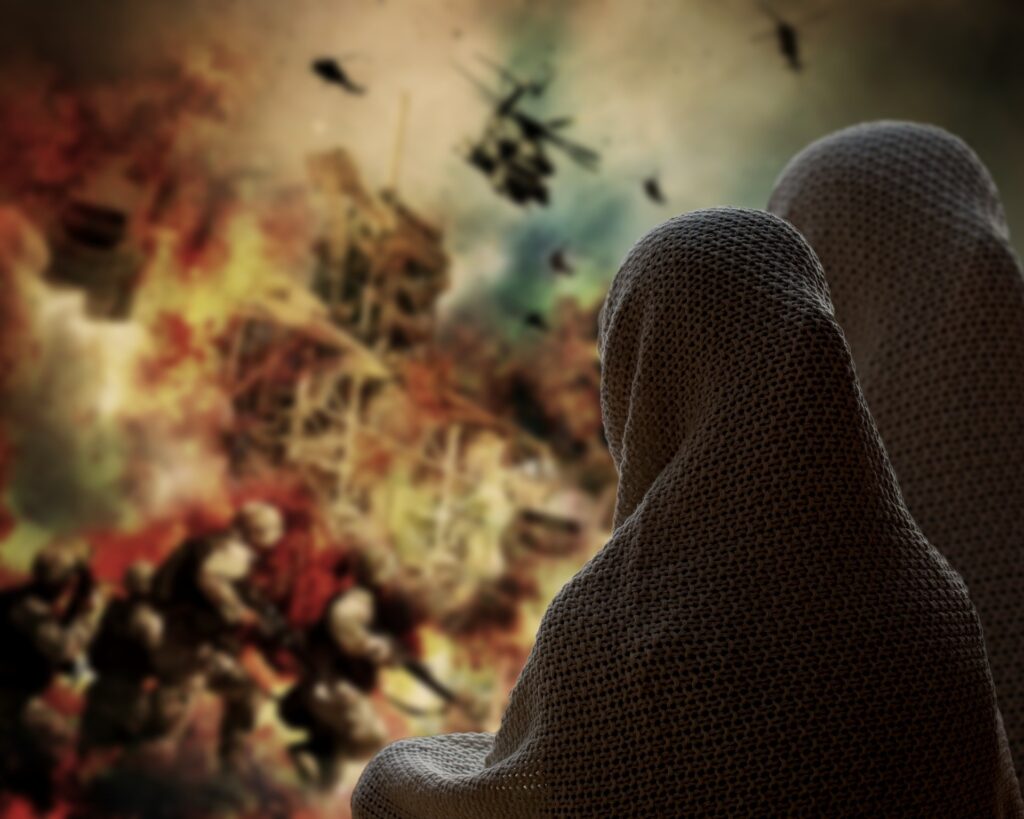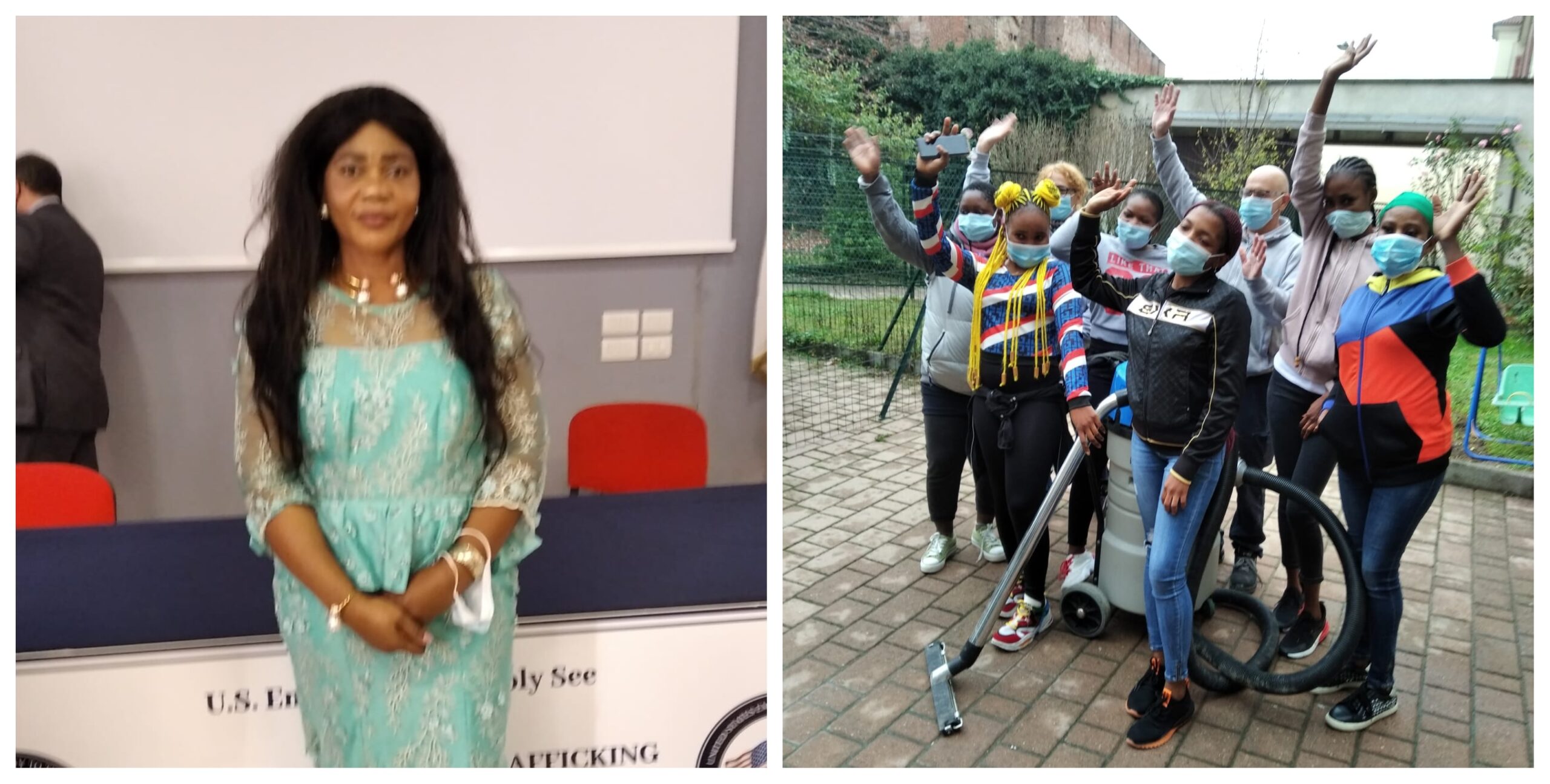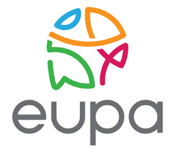This year’s International Day for the Elimination of Violence against Women comes at a time during which the tragedy of violence against women is increasingly worrying. Gender-based violence (GBV) was already a dramatically widespread issue worldwide, and yet with the outbreak of Covid19, and the consequent restrictive measures, cases of domestic violence have seen a significant and worrying increase during the months of lockdown, with now one in three women having experienced physical or sexual violence, too often perpetrated by an intimate partner.
On this occasion, this week we want to highlight the drama of the many migrant women who suffer from abuses and violence. Many of them go through violence and sexual abuses during the journey or before, while they are detained and tortured by traffickers and smugglers. Many of them often become victims of human trafficking for sexual exploitation, as once they arrive through irregular ways to their destination countries, are forced into prostitution, being tied to oaths and rituals that make difficult for them to react to their condition.
To explore this dramatic topic more in depth, we asked some questions to Princess Inyang Okokon, a cultural mediator at PIAM (Progetto Integrazione Accoglienza Migranti – Project for the Integration and Welcoming of Immigrants) in Italy, in Piedmont, with the aim of combating prostitution and women trafficking in the region where she lives and stop this tragic phenomenon.
Migrant women are often victims of extreme violence. Could you give us an overview of the situation they face, as in the challenges and traumas they face and the specific struggles they go through, during their journeys or once they reach their destination countries, what situation do they find themselves facing?
“Migrant women who are victims of human trafficking face a lot of challenges during their journey to Europe like rape and violence, beating and hunger, as they are often left without food and water. Some of them are forced into prostitution in the connection houses, and some are locked in prison where police rape and abuse them and some of them get pregnant in prison.”
Tell us more about your work: what is PIAM and what does it do? How many women have been helped so far?
Piam Onlus (Project of Integration and Welcoming of Immigrants) is an association founded in 2000 to help abused and vulnerable women escape their traffickers in Asti (Italy), in the North Western region of Piedmont.
Piam offers accommodation (shelters) for the victims of human trafficking, and other many services for women, including for example Italian language courses for good communication and social integration, or accompanying the victims to the hospital for health care services and buying medicine for them as per their doctor’s prescriptions.
Piam also takes care of the education on maternity motherhood and family planning, as well as legal assistance (by providing lawyers to fight their cases in the court to win their traffickers).
We educate the victims never to become madams and also to open up to speak their true stories during the interview with the cultural mediators for anti-trafficking, in order to allow easy identifications and evaluations for their right to obtain resident permit of stay. Piam cultural mediators for the anti-trafficking work with the Territorial Commission for the identification of victims of human trafficking among nomad refugees.
Piam trains the victims on professional courses to enable them to get working opportunities as well as paying for the first 3-6-month wages on their stage work. Piam also assists women in the search for jobs after the professional courses and help with the house rent for 6 months for women who finish their projects, in order to start a normal life.
Piam has been able to help more than 400 women escape from their traffickers, although more women have passed from Piam to other associations like ours.
What pushed you to start working for this cause?
What really pushed me to start working for this cause is the vision that God gave me in 1998 that He will send me to Europe to help the people, to assist them and to set them free from their bondage.
Secondly, since I was a victim of human trafficking I had a very bad experience on that field and I pass through the same difficulties the women encounter and the trauma, so I felt for the victims and strongly believe that God can use me to assist them.
I was very upset and angry with the traffickers by using us to make their money and selling women like commodities. My anger moves me to fight for the right of women to gain back our dignity and pride as a woman. I also believe that saving one victim will make a way of freedom for other women.
What are the main challenges you face in your work?
The main challenges that I face during my work are the threats from traffickers, but this doesn’t change my mind from working for these women.
In our work we struggle with the lack of shelters to fix up the victims when escaping from their traffickers, as well as the lack of funds for most of the projects we have for them. Some problems are caused by the delays for women to obtain their resident permits. After finishing their projects with Piam, their future may not be certain because of lack of work and housing. Most of them have difficulties to get jobs and to rent their permanent houses, so we are so worried they might return back to the street, or on their way back home.
Can you offer us an overview of the situation facing migrant women who arrive in Italy, what happens to them and what are the main challenges that they face?
When arriving their destination continues some of them remain in the refugee centres even if they don’t like being there. They also have language barriers, so it is very difficult for them to communicate with the authorities to express their feelings and their stories.
They always face trauma and fear at taking decisions concerning their traffickers whether they should remain in refugee centres or go meet their traffickers. This is because before their departure they are forced to swear an oath of obedience (the juju ritual). Some of the women become pregnant before their destination countries and instead of having to think only for their safety they are forced to think for two persons.
Most of them, because of the juju rituals oath, are forced with fear to go and meet their traffickers and their madams and forced to work along the street as prostitutes and pay a lot of money for the very high debts imposed on them by their madams which also include expenses like house rent, gas/light bills etc, which remain for a long time.
What is the situation for women who are forced to become prostitutes? Is the situation the same in all destination countries?
The situations of the victims of prostitution seems to be the same in all destination countries. Though the places of work might be different, the ways of paying their debts are almost the same. Some may be working along the roadside like in Italy, but in Belgium victims work in glass rooms, in France both indoor prostitution and also on the streets. In the eyes of sex traffickers, these women are subhuman, exploited to enrich their pimps who treat them like ATMs, and when the ATMs run out of cash, they discard it and look for another one.
As they swear an oath of obedience, they always live with fear of the juju rituals and are forced to pay their debt. Women are always managed by their traffickers and their madams and most of the time they make their families at home go to the native juju court to swear an oath for their daughters to force them to pay their debt.
Most of the victims face danger and risk being killed by bad clients. Some of them often face rape and some bad boys beat them up and steal their money.
What are the needs of women who go through such dramatic events and how can migrant women be better helped and supported? What efforts can be done by governments, civil society and all of us to stop this tragedy and support these women?
Victims should be given protection and a clear set out of the standards of living that must be guaranteed for them, as sheltered housing, material and medical assistance, psychological support, legal advice, and information provided with translation and mediation services.
The European Union should establish minimum standards for issuing residence permits to victims of human trafficking who agree to cooperate with the assigned authorities to allow victims to free themselves from the influence of traffickers. Identification procedures and integration processes for victims should be improved, to enable them to practically access the facilities for integration and protection of survivors and prevention of trafficking.
Some good practices from member states include giving the victims possibilities for having access to services as health care or schools without long identification processes and allowing various institutions like organizations of national anti-trafficking systems, as well as the police forces and local commissions to officially identify victims of trafficking.
It should be allowed to the survivors of trafficking to benefit from protection programs as victims of trafficking for reasons that go beyond their cooperation in the investigation of criminal networks. It is also important to follow up the reception system of Italy, that is based on structures for victims of trafficking and on different kinds of facilities for asylum seekers, for example public reception centres, temporary structures or SPRAR / SIPROIMI (System of protection for asylum seekers, refugees, persons under international protection and unaccompanied minors) networks, which have different models in terms of organization, cost distributions and duration of hospitality, etc.
Final thoughts
We are thankful to Princess for this wide overview on the situation of women forcibly involved in prostitution and trafficking and for an insight on her tireless work to help stop this. At MOAS we acknowledge the practices highlighted by Princess, that are needed to help better support women who go through such dramatic events. Our safe and legal routes campaign is aimed at reducing markets and space for human traffickers to carry on their activities, so that women, men and children can be allowed to reach safe countries in safe ways and not being forced to put their lives at the mercy of smugglers and traffickers. The violence perpetrated to women because of their gender needs to be stopped, and besides fundamental measures taken by important actors, we all must work towards more education and awareness to prevent these tragedies from happening.
If you are interested in the work of MOAS and our partners, please follow us on social media, sign up to our newsletter and share our content. You can also reach out to us any time via [email protected]. If you want to support our operations, please give what you can at www.moas.eu/donate/.



